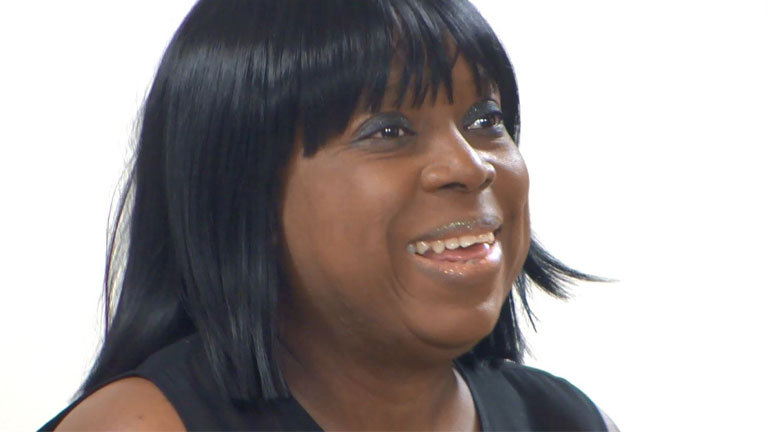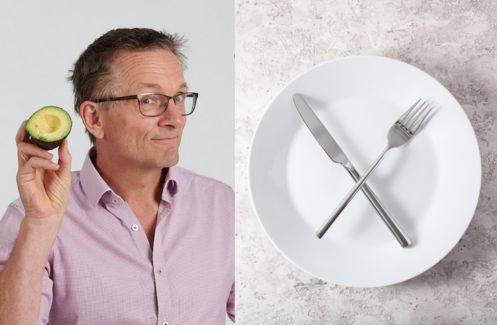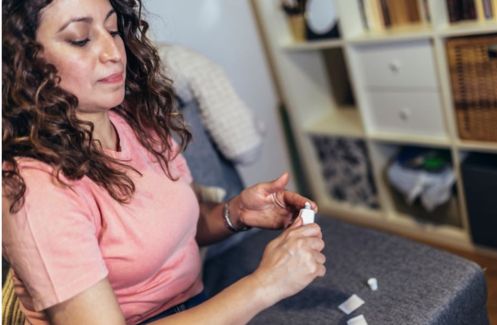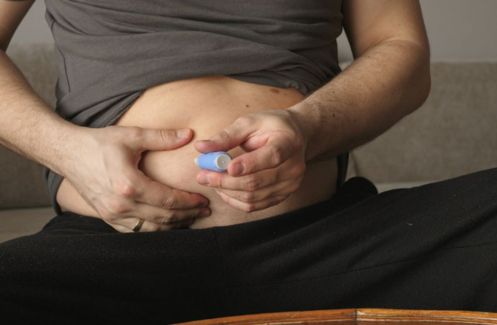At 28, a routine test revealed that pregnant Florence Odabeyi was HIV positive, having contracted the virus ten years before from her first sexual partner. Florence, now 46, tells Healthista her compelling story
HIV and AIDS is a virus that affects millions of people globally. And, although it has been in decline since its first epidemic in the 1980s, it is still a serious public health concern.
But, don’t be fooled into thinking that it affects certain groups of people. Any one can be infected whether young or old.
Researchers are working on ways to treat the disease, and though a cure is a long way off, there’s been massive developments this year. After 12 years since the first and only man, the ‘Berlin patient’, was ‘cured’ of HIV after a bone marrow transplant, two more men have received similar cancer treatment that put their HIV in remission.
The first new case of an HIV cure news is that a HIV positive-man, anonymously referred to as the ‘London patient’, is the second man to be ‘cured’ of HIV. After being diagnosed in 2003 with HIV, he started taking drugs to control the infection in 2012. He later developed Hodgkins Lymphoma, which was treated with a stem cell transplant.
Doctors found a donor that had HIV resistance genes and which they used in the transplant and since then he has appeared to be free of the virus. The patient been off the medication to control HIV for 18 months and there is still no trace of the infection.
The ‘London patient’ is only the second person to have their HIV go into remission after cancer treatment
Not long after, an apparent third case of HIV going into remission appeared. At the Conference on Retroviruses and Opportunistic Infections in Seattle, Washington, a third patient known as the ‘Düsseldorf patient’, had his HIV go into remission after cancer treatment.
While bone marrow transplants are clearly not an option for the majority of HIV patients, these cases give hope to doctors that a cure is possible with more research.
Florence’s story
When Florence Odabeyi became pregnant at the age of 28 she was overjoyed and when during her first trimester she was offered routine HIV testing, she told the midwife: ‘I’m well, there is nothing wrong with me’.
But two weeks after the test, the mental health support worker found out she was, in fact, HIV positive. ‘I was shaking, I started crying. I was in shock. What I knew about HIV is that people will die of AIDS. I thought I had just a few months to live.’
That was 1999, during what was known as the AIDS epidemic, its first official cases being recognised in 1981. People knew very little about HIV then and how it was transmitted, but it was largely associated with prostitution, injecting drug users and gay men.
Despite being told her baby would be healthy, Florence thought she faced a death sentence. ‘They told me my baby would be healthy, but I said ‘What about me? Am I going to die?’ As it turned out, Florence had contracted the virus ten years before when, at 18, she had her first sexual experience in Nigeria where she was born. Having migrated to the UK in 1997, Florence had no symptoms other than fatigue in the lead up to her HIV test. In fact, she was surprised to find her diagnosis was not a death sentence and that with the right treatments, she could live a long, healthy life.
for the first time since the HIV virus was first identified 30 years ago, there has been a decline in new cases.
”Things have changed now and people are successfully living with medication,’ the midwife told me’ Florence remembers. ‘You just continue to take your medication and your viral load will be suppressed and your CD4 count [white blood cells that fight infection] will go up.’
After three months, Florence’s viral load had become undetectable, meaning the HIV virus could not be picked up by a test or transmitted to another person, and her CD4 count had reached a healthy 4-500 where it remains today. Her baby boy, Tyrone was born healthy.
Yet, of those living with HIV in England, 12 per cent remain undiagnosed
While HIV was once an epidemic, the heartening news released from Public Health England (PHE) in October 2017 revealed that for the first time since the HIV virus was first identified 30 years ago, there has been a decline in new cases, which is still true. This decline, said Deborah Gold, from the National Aids Trust, was thanks to quick treatments that are more effective than ever, especially if the virus is detected early and more and more people using condoms, among other things. What’s more, she added, thanks to effective treatments, more people are living like Florence, with undetectable viral loads, which means they can’t pass the virus on to others.
Despite this, Florence – now aged 46, and living in Hull with her husband Christopher, 57 also a mental health support worker and son Tyrone who is now 17 – has faced much stigma and discrimination. This persisting taboo around HIV, say charities such as Avert is thanks to myths from the 1980s still very much alive today. ‘I told an ex-partner on the phone and he said ‘if I have a HIV test done and it comes back positive, I’ll shoot you. I’ll get a gun and kill you’’. The father of her newborn child, too, changed his phone number as soon as his test came back negative. ‘I’ve had dentists take me off their list when they find out I’m HIV positive, or wear two pairs of gloves’, Florence says.
But the stigma remains: I told an ex-partner on the phone and he said ‘if I have a HIV test done and it comes back positive, I’ll shoot you. I’ll get a gun and kill you’’.
‘When you have cancer, people rally around you. But with HIV, they hear your story and they cut you off’, says Florence. When she was first diagnosed, she found friends in a local support group, Positively Women (now Positively UK). ‘When I first went there, I couldn’t believe my eyes. There were women with HIV who were living normal lives. They had their nails done, their hair done, were working, some were even pregnant. That gave me hope’.
With discrimination rife, Florence decided it was best to tell her son Tyrone from a young age. One day, a BBC documentary was on TV showing children in Africa being taught about HIV. Tyrone was six at the time and watched it with her. ‘After a few months I was getting ready to take him to school and he saw me taking tablets. He said, ‘Mum, why do you really take those tablets? [I had previously told him they were vitamins]. I said, ‘do you remember the programme we watched about that bug and there is no cure for it? I’ve got it’. He laughed. He thought it was funny that mum had a connection with someone on the telly.’
HIV and having children
For those without the right care, the chance of a woman with HIV passing it on to her baby is between 35 and 40 per cent. In the UK, because of high standards of care, the risk of HIV being passed from mother to baby is very low. ‘A woman who has been tested, the virus has been diagnosed and she is started on treatment of tablets, there is close to a zero risk of her passing it onto the baby’, says Dr Laura Jane Waters, a HIV doctor in the sexual health service at Mortimer Market Centre in London.
In 2016, less than one per cent of new HIV diagnoses in the UK (41 cases) were cases of mother-to-child transmission, which were almost exclusively in cases where the child was born abroad. HIV treatment works by reducing the viral load so that the baby is exposed to less of the virus while in the womb and during birth. ‘The goal is to make sure the woman has an undetectable virus in her blood before she is even close to giving birth,’ says Dr Waters.
‘If a woman with HIV became pregnant and they were already on medication which is working, we would be unlikely to change that,’ Dr Waters continues. ‘If they are diagnosed during pregnancy, we would give them the same treatment or menu of drugs as we would generally ensuring we keep the virus undetectable. If, when it comes to labour the HIV virus is detectable, we would give the woman more medication to lessen the chances of transmission.
‘The baby will be given medication but how much and for how long will depend on whether the mother had a detectable virus at birth or not.’
A vaginal birth is usually recommended if there is an undetectable viral load, she explains. ‘If there is any doubt and the virus is detectable either because the treatment stopped working, the woman stopped taking it or it was found too late in pregnancy, then we offer a caesarean because that will reduce the risk of transmission’, says Dr Walker. ‘After that, the baby may or may not get more drugs, and then we recommend no breastfeeding because there is a risk, although very small.’
‘The key thing is that in the late 90s HIV testing in pregnancy wasn’t as established as it is now’, says Dr Laura Jane Waters, ‘Uptake wasn’t very high, whereas now, since 2011, 97 per cent of people take it because it’s become a normal part of the routine screen. Secondly, we know much more about the safety of drugs and we are much more confident about starting drugs early in the pregnancy.’
HIV today – the facts
According to Public Health England, in 2016 there were 5,164 new diagnoses, a reduction of 18 per cent of new diagnoses in only one year from 2015. This was the biggest decline since the virus was first identified 30 years ago and is largely attributed to decreases in diagnoses among gay and bisexual men, primarily in London, and a sustained decline in diagnoses in black African heterosexual men and women as well as the use of condoms. Yet, of those living with HIV in England, 12 per cent remain undiagnosed and do not know about their HIV infection. Getting tested is easy – speak to your GP or visit your local GUM sexual health clinic for anonymous testing. Find a clinic near you here.
December 1 is World AIDS Day. For more information, visit the Terrence Higgins Trust, Positively UK, NAM and UN AIDS.
READ MORE
What it’s REALLY like to live with schizophrenia
MTV’s Shuga series is back with season 5 tackling HIV/AIDs in a captivating way
I’ve had unprotected sex, what now? The GP’s guide
WIN an overnight spa stay worth £279 by taking our 5-minute survey
Do you want to experience ultimate relaxation? To be in with a chance to win an overnight spa stay for two including treatments and meals, complete our five minute survey about how your gut health affects your relationships

Like this article? Sign up to our newsletter to get more articles like this delivered straight to your inbox.












































































































